Refugees, reporting and the far right: how the Ukraine crisis reveals 'everyday racism' in Europe, beyond
5 min readThe intensifying conflict in Ukraine has raised the issue of racism not only in Ukraine, but Europe. Three specific and related dimensions of racism are evident in this complex conflict.
Shocking reports emerged in the past week of discrimination faced by African and Asian nationals (mainly international students in Ukraine) who were among the over 1 million people seeking refuge in neighbouring Poland, Hungary, Romania, Slovakia, and Moldova.
African and Asian people were forcibly prevented from boarding trains and buses leaving Ukrainian cities, as priority was given to white Ukrainians. Those who finally reached the Polish border (some even on foot) found that again white Ukrainians were prioritised entry. Some African, Asian, and Middle-Eastern nationals were met by verbal and physical abuse on arrival.
Many African, Asian, and Middle Eastern nationals spent two to three days at border check-points, and reported lack of food, water, accommodation or basic support in freezing winter conditions, while they waited to get through.
A statement issued by the African Union condemned reports about the treatment of Africans as “shockingly racist and in breach of international law” and observed:
all people have the right to cross international borders during conflict, and as such, should enjoy the same rights to cross to safety from the conflict in Ukraine, notwithstanding their nationality or racial identity.
Equally disturbing is the unthinkingly racist mainstream media framing of Ukrainian refugees, in comparison to the framing of refugees from Syria, Iraq or Afghanistan or Africa.
Below, a selection of such racist commentary from major news outlets:
“This isn’t Iraq or Afghanistan […] This is a relatively civilised, relatively European city” - Charlie D’Agata, CBS
“War is no longer something visited upon impoverished and remote populations” - Daniel Hannan, The Telegraph
“What’s compelling is looking at them, the way they are dressed. These are prosperous, middle-class people. These are not obviously refugees trying to get away from the Middle East […] or North Africa. They look like any European family that you’d live next door to” – Peter Dobbie, Al Jazeera
These descriptions of Ukrainian refugees invidiously position them as more “civilised” and “superior” to refugees from the Middle East, African or Asian nations. This seems to imply that Ukrainian lives are worth saving, while the lives of millions of others who seek refuge are more disposable because they are people who are not “well-dressed”, “middle-class”, don’t “look like us”, or live in more remote, supposedly less “civilised” locations.
The third and more dangerous dimension of racism is the mobilisation of the neo-Facist, white supremacist Azov movement in Ukraine since 2014. Azov started as a volunteer battalion that was then officially integrated into the National Guard of Ukraine in November 2014. The current Ukrainian government has not made comment on this movement.
In the current crisis, Azov battalion is training Ukrainian civilians for guerrilla-style combat with the Russian military.
However, it is important to also note that similar white nationalist groups exist across Europe and North America. Therefore Putin’s claim of “de-Nazification” of Ukraine is a flimsy reason for invasion of Ukraine.
While the Azov battalion officially denies adhering to white supremacist ideologies, Azov’s street patrol called National Militia were responsible for attacks on Roma in Ukraine in 2018.
Azov also plays a pivotal role in the global network of far-right, white-nationalist extremism; it “participated in training and radicalising United States–based white supremacy organizations” (according to a 2018 FBI affidavit).
Closer to home, alongside other European far-right movements, Azov’s propaganda appears to have inspired Brenton Tarrant of Australia in his deadly terrorist attack on a mosque in Christchurch in 2019. This was evidenced by the sonnerad or black sun on his jacket, a symbol commonly used by the Azov Battalion and far-right brands in France.
Research suggests racism and xenophobia varies with the relationship between hostile government policies and anti-migrant sentiments of the population. In short, the problem of racism is not just Ukrainian or eastern European, it is European.
More nuanced analysis argues there is insufficient evidence to show eastern Europeans are more xenophobic than western Europeans. Any analysis should consider the complex histories of migration from, and through eastern European countries.
Indeed, as the global news coverage of Ukrainan refugees demonstrates, everyday racism - or what Goorie author Melissa Lucashenko refers to as “white normal savagery” is not restricted to eastern Europe. All three dimensions of racism discussed here are the manifestation of global, systemic institutionalised racism and imperialism.
Acknowledgement of this institutionalised racism and imperialism would begin by first recognising the Ukraine crisis as a power struggle between the US/NATO and Russia, underwritten by interests of weapons manufacturers and oil companies. This crisis was long predicted by strategic observers of global politics.
Recognising the wider context of institutionalised racism would allow us to connect the current racist treatment of African and Asian migrants in the Ukraine crisis to deadly European border policies over the past decades. These policies have led to increasing numbers of migrants mostly from Africa and the Middle East, reported as missing in the Mediterranean since 2014.
Azov needs to be recognised as the belligerently violent face of a racialised political order that is potentially dangerous. However, this would require holding the US accountable for its suspected support of Azov, and its refusal (along with Ukraine) to condemn the glorification of Nazism in a UN Resolution in 2017.
Finally, we should recognise that any moves to dismantle institutionalised racism are unlikely to be undertaken voluntarily. As Professor of Sociology József Böröcz argues, the defining element of “whiteness” is a “claim, indeed demand, for unconditional global privilege” that is always being reconstituted.
For the latest news, follow us on Twitter @Aaj_Urdu. We are also on Facebook, Instagram and YouTube.





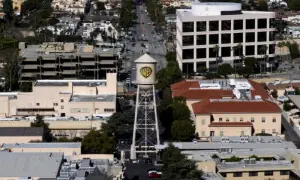
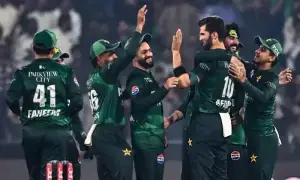








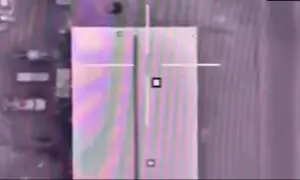
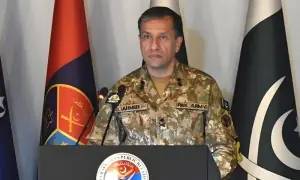
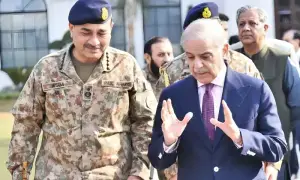
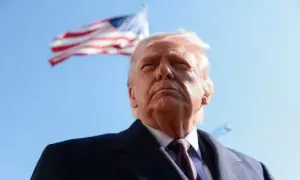
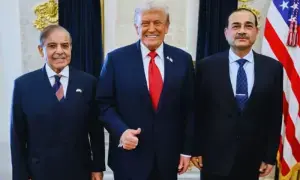
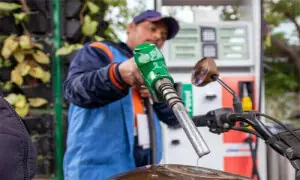


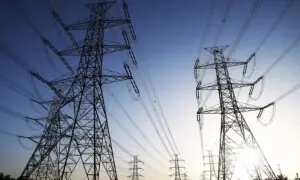
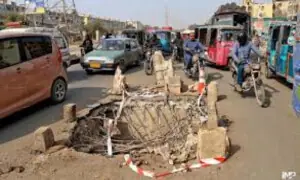

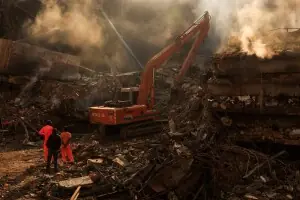
Comments are closed on this story.